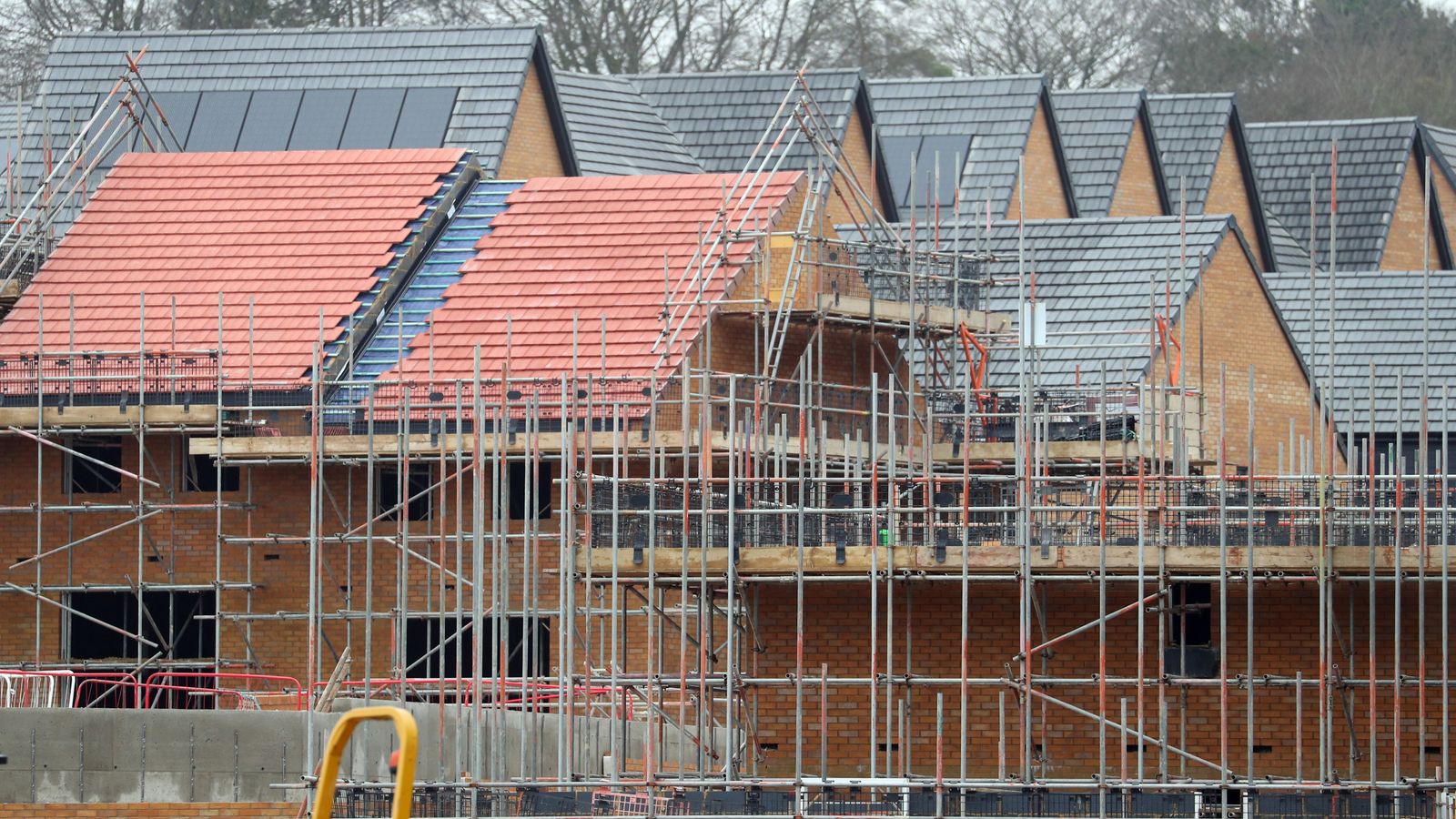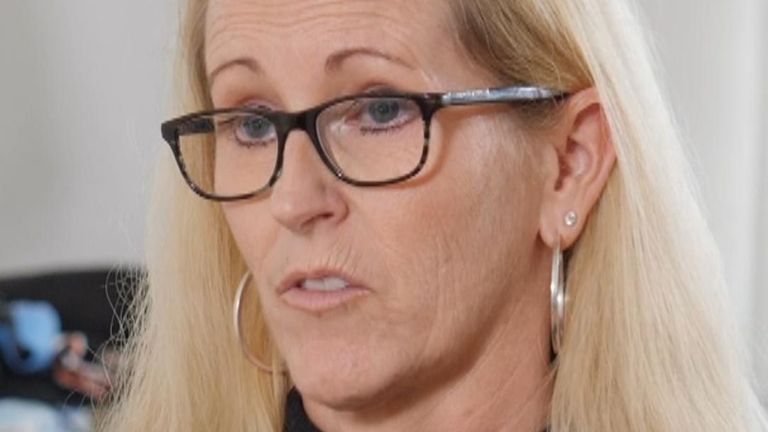Shares in UK housebuilders have taken a fresh hit on the latest woes to hit the sector including a profit warning from a major player.
Crest Nicholson shares plunged almost 15% at the start of Monday’s trading after it slashed adjusted pre-tax profit expectations for the year to October by more than 40% to £50m.
The Chertsey-based firm, which has lost more than a quarter of its market value in the year to date, blamed slowing sales as buyers battle high interest rates and inflation.
Larger rivals saw their stocks come under pressure too.
Taylor Wimpey, Barratt Developments, Berkeley and Persimmon were the biggest fallers on the FTSE 100, with declines of more than 3% seen.
The market reaction also followed a Rightmove report showing a sharp fall in asking prices due to the twin squeeze on consumers.
It said average asking prices fell by 1.9% over the past month, the biggest fall for August since 2018 and twice as steep as the typical summer holiday decline.
Rising mortgage costs caused sellers to lower their expectations of what they can get for their properties, the property website added.
Nationwide Building Society had reported earlier this month that annual property values had declined by 3.8% in July, the sharpest fall since July 2009.
Data from Moneyfacts showed the average two-year fixed residential mortgage rate stood at 6.76% on Friday.
The five-year rate stood at 6.24%. Both were unchanged from the previous day.
They are linked to the funding costs faced by lenders as the Bank of England raises its key interest rate to battle inflation.
Financial markets believe it still has work to do, with Bank rate currently forecast to peak next year at 6% from the current 5.25%.
For its part, Crest Nicholson said transaction levels across the industry had weakened further, particularly in recent weeks, as mortgage borrowing turned more expensive.
“The group does not therefore expect to see a material improvement in trading conditions before its year end at 31 October,” it said.
Weekly sales volumes over the seven weeks to 18 Aug were at half the level the company had anticipated for the second half of the financial year.
The company had posted a profit of £137.8m in its 2022 fiscal year.
AJ Bell investment director Russ Mould said of the market reaction: “Weak house price data is hardly a surprise.
“Economic uncertainty is elevated, mortgage costs have gone through the roof and the Help to Buy scheme has come to an end.
“However, Crest Nicholson’s profit warning has laid bare the scale of the impact of a housing slowdown on the housebuilding sector.
“Sales of new homes have plunged alarmingly and, while not all developers in the space are created equal, the news, allied to Rightmove’s latest reading on the property market, has had a knock-on effect on share prices in the rest of the sector this morning.
“The £7,000 drop in the average asking price observed by Rightmove in the last month, allied to a big drop in transaction volumes, is the kind of statistic to make estate agents distinctly uneasy.”
“The scale of Crest Nicholson’s warning may come as a shock to investors given it reported its first half results just a couple of months ago and this hints at the speed and scale of the deterioration in the market.
“The one compensation for shareholders is Crest Nicholson is at least sticking with its planned full year dividend payment for now. However, its gloomy update will have set the market on alert for further warnings from its industry peers.”

